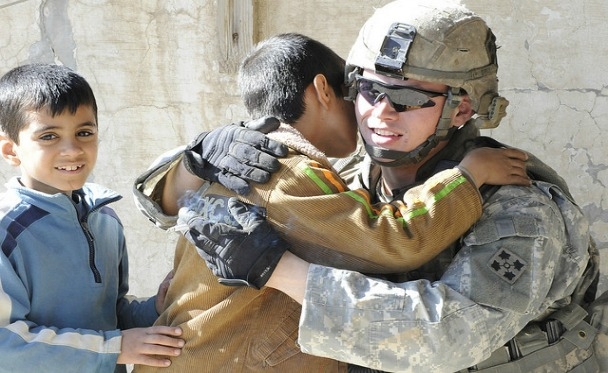
Ten Years Later - U.S. Public Diplomacy and the Arab World
The USC Center on Public Diplomacy hosted a panel discussion looking at U.S. public diplomacy in the Arab world ten years after the 9/11 attacks.
Read the event synopsis below.
Setting the framework for the event, panelists were asked to consider the question that U.S. policymakers have grappled with, “Why do they hate us?” and then with the broader issues of the tone and substance of American public diplomacy.
Given that the Arab world has presented particular challenges to the United States. The panel examined U.S. public diplomacy during the past ten years and considered ways in which it might be improved for the years ahead. A particular emphasis was placed on changes in the region, such as the increasing use of new communication technologies and the political changes resulting from this year’s Arab revolutions.
Panelists also addressed the following topics:
• The 9/11 awakening – “Why do they hate us?”
• Redefining public diplomacy in 2001 – what were the goals?
• Understanding Arab expectations – policy trumps promises.
• Obama’s 2009 Cairo speech – success and failure.
• Redefining the region – the Arab revolutions and the demise of Bin Laden.
• Designing a new public diplomacy strategy for the United States.
Panelists included:
Najla Al Awadhi: CPD Advisory Board Member and former Member of Parliament of the United Arab Emirates and CEO, Najla Al Awadhi Consulting
Laurie Brand: CPD University Fellow and Robert Grandford Wright Professor and Professor of International Relations, USC School of International Relations.
Geoffrey Cowan: CPD University Fellow and Director, USC Annenberg Center on Communication Leadership & Policy.
Jerrold Green: CPD University Fellow; Director of the Pacific Council on International Policy; and Research Professor and the USC Annenberg School for Communication & Journalism.
Philip Seib: Director, USC Center on Public Diplomacy at the Annenberg School; Faculty, USC School of Journalism; and Faculty in Public Diplomacy; USC Annenberg School for Communication.
Ernest J. Wilson, III: CPD University Fellow; Dean and Walter Annenberg Chair in Communication at the USC Annenberg School for Communication & Journalism.
SYNOPSIS
The challenges faced by public diplomacy practitioners in the post-9/11 era are complex. Panelists at USC’s Center on Public Diplomacy’s recent discussion on U.S. Public Diplomacy and the Arab World argued that a disconnect between U.S. and Arab interests is one of the main hindrances to public diplomacy efforts in the region, citing a need for more direct communication between American officials and the Arab public. Noted experts among the panelists alluded to the failures of U.S. foreign policies in the Middle East as one the reasons behind growing discontent between the Arab people and the U.S. government. As one panelist stated, the gap between listening and understanding is often part of the “hypocrisy” of foreign policies. Therefore, public diplomacy practitioners are faced with the challenge of bridging the “say-do” gap.
The panel, moderated by CPD director, Philip Seib, also discussed the ever-evolving political climate in the Middle East, making mention of the need for legitimate platforms where members of the Arab public can dissent peacefully. The event is part of the Center’s ongoing efforts to shed light on U.S./Arab public diplomacy relationships. In the latest paper in the Center’s CPD Perspectives on Public Diplomacy series CPD Research Fellow Kathy R. Fitzpatrick furthers the discussion on U.S. public diplomacy efforts post 9/11, and assesses whether governments can truly move from messaging to mutuality. To read Fitzpatrick’s paper, click here. Click here to read CPD director Philip Seib’s blog on the need for Arab States to embrace public diplomacy.
Press on CPD’s Ten Years Later event:
“Experts discuss the complexities of U.S. foreign policy since Sept. 11,” Daily Trojan, September 9, 2011
Visit CPD's Online Library
Explore CPD's vast online database featuring the latest books, articles, speeches and information on international organizations dedicated to public diplomacy.











